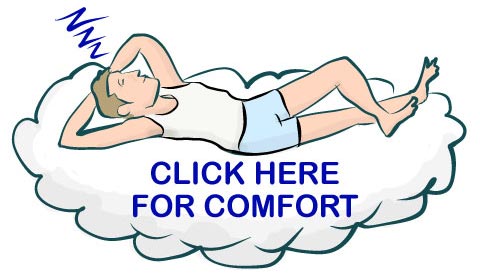If you suffer from anxiety, you know that it can negatively impact almost every aspect of your life. Developing long-term ways for decreasing your anxiety levels can improve your mental and physical health as well as your relationships and general quality of life. Here are some strategies for thinking about, dealing with, and diffusing your anxiety.
You can learn more about the symptoms of anxiety and its causes here: “Recognizing the Signs of Anxiety.”
Learn What Triggers Your Anxiety
Everyone has different things that trigger spikes in their anxiety levels. It’s essential that you start to identify what those triggers are for you because, otherwise, it’s going to be difficult for you to avoid or manage them. Here are some common triggers for people. Consider whether they might be triggers for you.
- Work stress
- The presence of clutter
- Deadlines
- News and world events
- Money concerns
- Worry about kids
- Marital strife
- Being in crowds
- Running late
- Being physically uncomfortable
- New situations
An anxiety trigger is different than an anxiety cause. A cause is what makes you suffer from anxiety in the first place, and it could be childhood trauma, the death of a loved one, a genetic predisposition for anxiety, or a medical problem. A trigger is something in the short-term that triggers the anxiety symptoms to come out.
A great way to begin to combat your anxiety symptoms is to learn what triggers them for you. Sometimes it can be hard to identify these triggers. Here are some methods to use to help you.
- Learn what anxiety feels like for you so you can associate it with its potential causes. Take time out to feel the physical symptoms of anxiety, identify and name them, and write them down. For some people, this could be sweaty palms, a pounding heart, a feeling of rising blood pressure, angry feelings, or stomach butterflies. Once you identify the feelings that come along with anxiety for you, you will be able to notice and diffuse the anxiety more quickly and also be better able to identify triggers based on the earliest signs of anxiety.
- Use an anxiety journal. Every so often throughout the day, for a few weeks or months, write down how you’re feeling and the events leading up to that feeling. Over time, you should be able to pick out patterns in your feelings and the things leading up to and potentially causing those feelings.
Limit Caffeine, Alcohol, Sugar, and Processed Foods
Anxiety symptoms can be worsened by what you eat and drink.
- Caffeine increases jitteriness and can amplify your symptoms.
- Alcohol can temporarily help you feel better, but then it acts as a depressant which can increase your stress levels and your anxiety symptoms. It also interferes with sleep, which can make anxiety worse.
- Sugar causes a rise in blood glucose levels followed by a crash. That negatively affects the brain’s ability to cope with stress and causes you to crave more sugar. These effects can ultimately increase the symptoms of anxiety.
- Processed foods often contain ingredients that can decrease the “feel good” hormone production in your brain and contribute to anxious feelings.
Eat Stress-Reducing Foods
Managing stress levels often helps decrease the symptoms of anxiety. Eating whole, unprocessed foods helps the body properly produce and manage hormones related to feeling good. There are some foods that are particularly good at decreasing stress. They include:
- Foods high in folate like asparagus, beans and lentils, and avocados.
- Foods containing tryptophan like turkey, nuts, and oats.
- Foods high in vitamin C, which helps decrease levels of the stress hormone cortisol, like broccoli, kiwi, and strawberries.
- Spicy foods that contain hot peppers. The capsaicin they contain increases endorphin levels in the body, which lead to good feelings.
- Polyphenol-containing foods like blueberries, tea, and dark chocolate can fight free radicals in the body and help reduce feelings of stress.
- Foods high in omega-3 fatty acids like salmon, avocados, and hemp seeds help increase the production of the feel-good hormone serotonin and decrease the production of the stress hormone cortisol.
- High magnesium foods may help decrease irritability and increase happy feelings. Salmon, green, leafy vegetables, and yogurt are high in magnesium.
- Zinc might help fight anxiety, and our bodies don’t store it, so we have to take it in routinely. You can get zinc in beef, cashews, and oysters.
- Fermented foods like kimchi, sauerkraut, and kefir aid in maintaining healthy gut flora, which is related to decreased stress levels.
Learn more here: “Healthy Foods That Fight Stress: A Slideshow.”
Work on Getting Enough Sleep and Make Sure It’s Quality Sleep
Stress and insomnia go hand-in-hand and often create a vicious cycle with one another. Increased stress levels often worsen a person’s anxiety symptoms and frequency of anxiety attacks, so getting good sleep should be a priority if you suffer from anxiety.
If you feel like you aren’t getting enough sleep or the quality of your sleep is poor, be sure you’re doing the following:
- Going to bed and getting up at the same times every day. This type of routine can help your body and brain acclimate to sleep better.
- Following a good bedtime routine which does not involve stressful activities, digital screen viewing, alcohol, or caffeine. Try a warm bath, soothing music, and an anti-anxiety book on tape#AD.
- Sleeping in a dark, cool space. Darken your room as much as possible and don’t place a clock where you can see it. Turn it around if you must have it in your room. Keep the space cool and don’t allow digital devices in it.
- Doing meditation, yoga, or positive affirmations before bed. Not only are these practices helpful for relaxing for sleep but they are also powerful techniques for reducing stress and anxiety.
- Sleeping on a good quality mattress that is supportive but also contours to your body.
Exercise Routinely
The importance of a routine exercise regime to combat both stress and anxiety can’t be overstated. People who exercise experience fewer anxiety symptoms than those who don’t, and doing regular exercise keeps those benefits steady.
If you don’t already exercise, you might wish to think about what type to choose as embark on a routine. If you choose something you enjoy, you’re more likely to stick to it over the long term, and that’s critical for gaining the maximum anxiety-fighting benefit from your exercise. Take a look at this article for more tips: “Aerobic Exercise: Fun Activities for Weight Loss.”
Decrease Your Exposure to Media
Too much time listening to news media or hanging out on social media can increase your anxiety symptoms. Try limiting your exposure to them and seeing whether your overall stress and individual anxiety symptoms decrease. If so, try limiting your exposure to them long-term.

